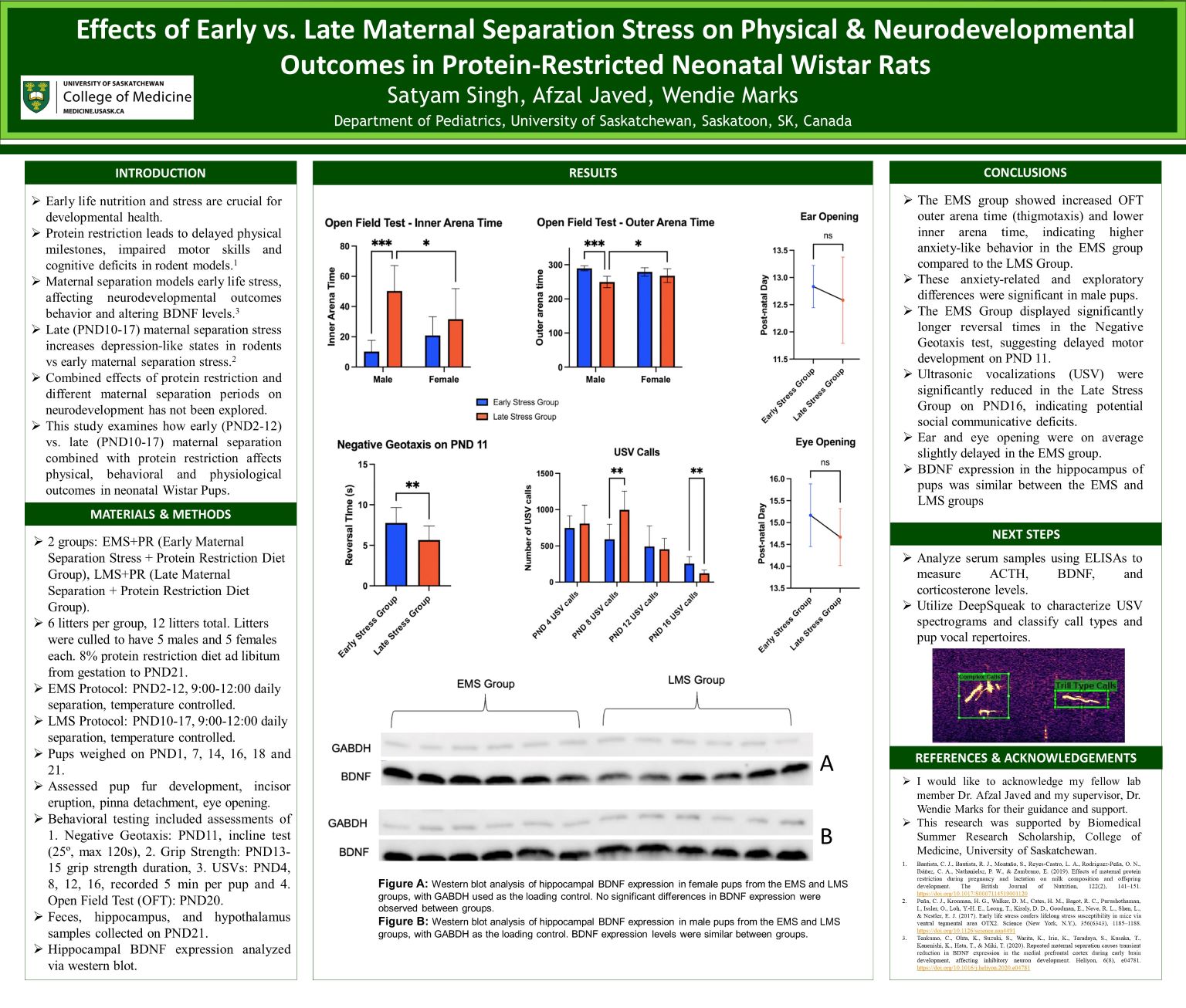
Examining the Effects of Early vs. Late Maternal Separation Stress on Physical & Neurodevelopmental Outcomes in Protein-Restricted Neonatal Wistar Rats
Satyam Singh
This study examined the effects of early and late maternal separation stress combined with protein-restriction (PR) diets on developmental, behavioral, and neurobiological outcomes in neonatal Wistar rat pups. The Early Maternal Separation Stress (EMS + PR) group (PND 2-12), exhibited increased anxiety-like behavior, characterized by higher outer arena time (thigmotaxis) and lower inner arena time in the Open Field Test (OFT) compared to the Late Maternal Separation Stress (LMS + PR) group (PND 10-17). These anxiety-related and exploratory differences were significant in male pups. The EMS group also displayed significantly longer reversal times in the Negative Geotaxis test on postnatal day 11 (PND 11), suggesting delayed motor development at this time point. On PND 16, ultrasonic vocalizations (USVs) were significantly reduced in the LMS group, indicating potential social communicative deficits. Additionally, ear and eye opening were on average slightly delayed in the EMS group. No significant differences were found in hippocampal BDNF expression between the EMS and LMS groups. These findings highlight the combined impact of different maternal separation stress periods and PR diets on physical, behavioral and physiological outcomes in neonatal Wistar Pups.
